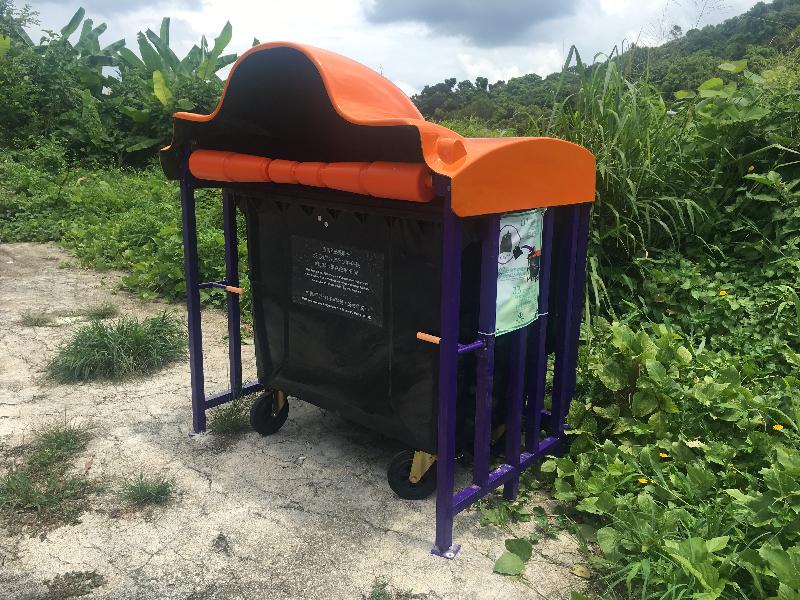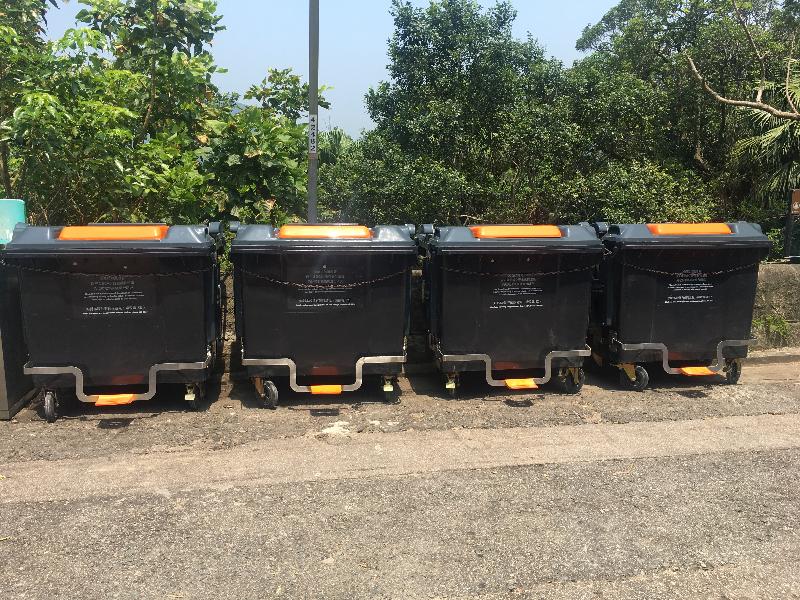The Agriculture, Fisheries and Conservation Department (AFCD) today (June 24) announced that three newly designed types of wildlife-resistant refuse collection facilities are now in service after the completion of field trials and surveys to further reduce nuisance caused by wild animals such as wild pigs and monkeys rummaging through outdoor refuse collection facilities for food.
The Government commissioned the Public Design Lab of the Hong Kong Polytechnic University as the consultant to improve the designs of refuse collection facilities in 2019. Three newly designed types of wildlife-resistant rubbish bins and litter containers were then introduced. The new designs can hinder wild animals in searching for food at the facilities, thereby reducing nuisance caused by wild animals.
"The Government placed the three newly designed types of bins and containers at over 70 locations across 14 districts in Hong Kong where wild animal nuisance is commonly found, including wild pig nuisance black spots in Central and Western District, Southern District and Sai Kung District. Three rounds of field trials were also conducted. The consultant has all along been adjusting and enhancing the designs of the bins and containers according to field observation of wild animals' reactions to the newly designed refuse collection facilities, usage by cleaning workers and members of the public, and survey findings," an AFCD spokesman said.
The survey found that nearly 80 per cent of the interviewees agreed that the new designs could effectively reduce wildlife nuisance. Furthermore, the consultant also pointed out that co-operation of members of the public and proper use of refuse collection facilities are the keys to preventing wildlife nuisance, for example not leaving household refuse outside litter containers and not feeding wild animals.
The AFCD will share the new designs with related departments. They can continue to place the newly designed refuse collection facilities in suitable sites on a needs basis to reduce nuisance caused by wild animals searching for food.
Follow this news feed: East Asia








